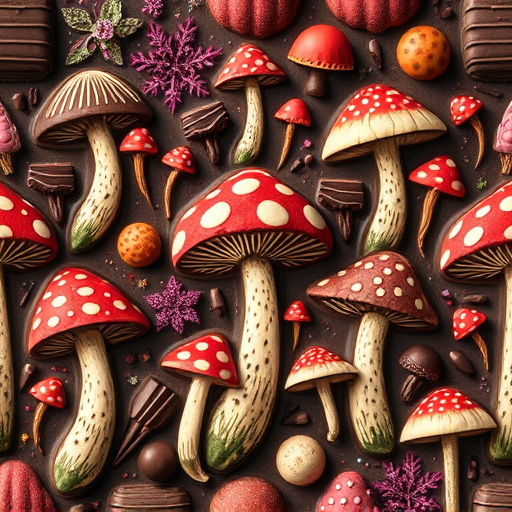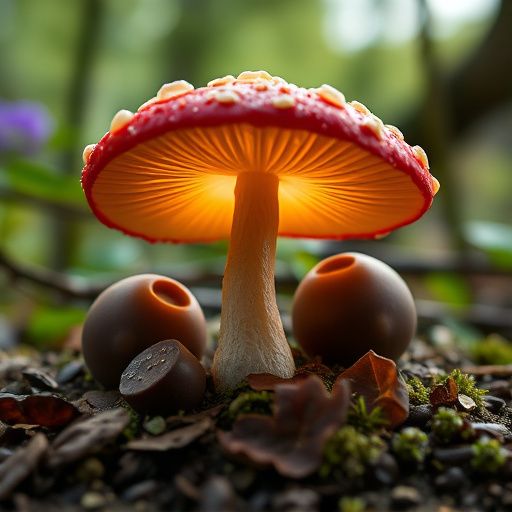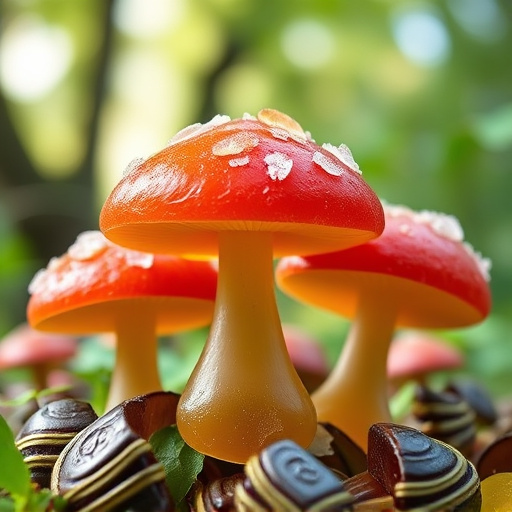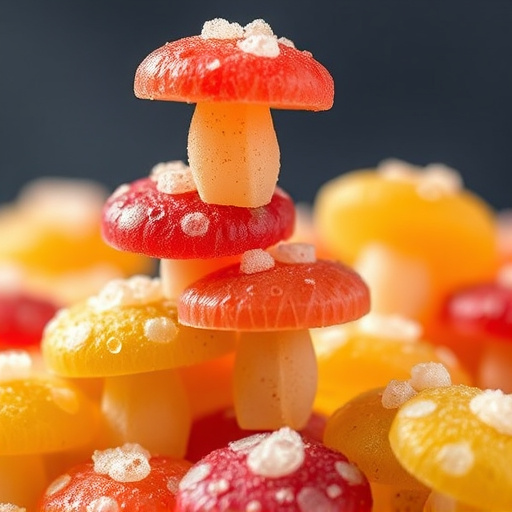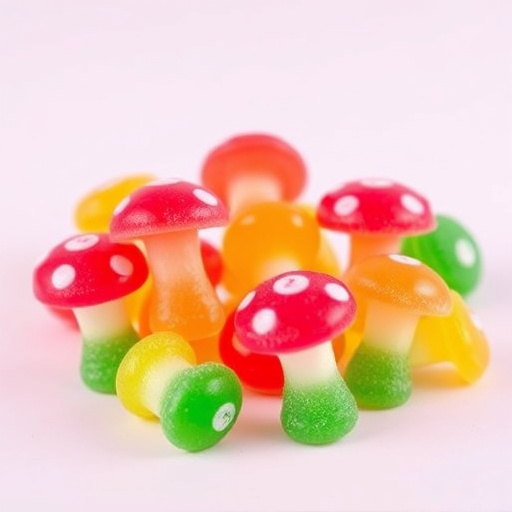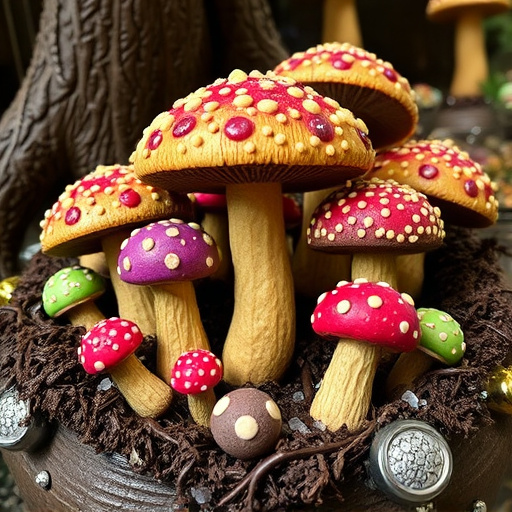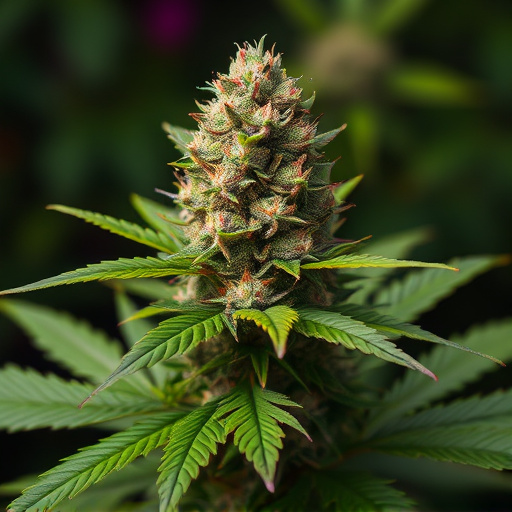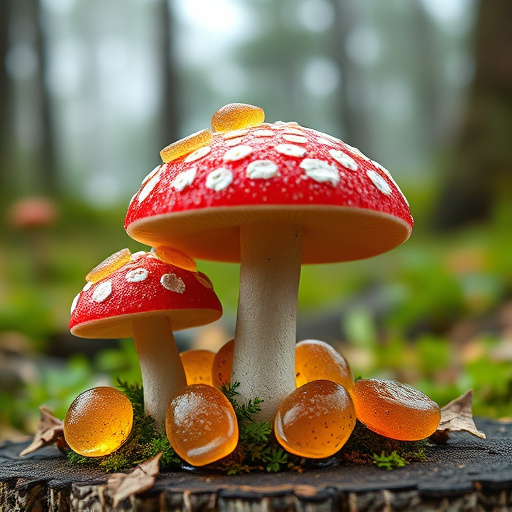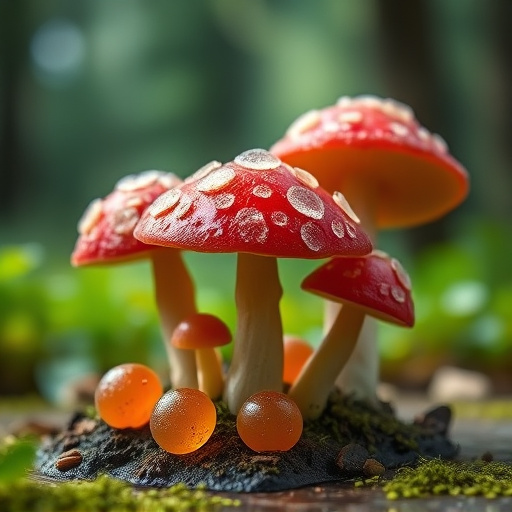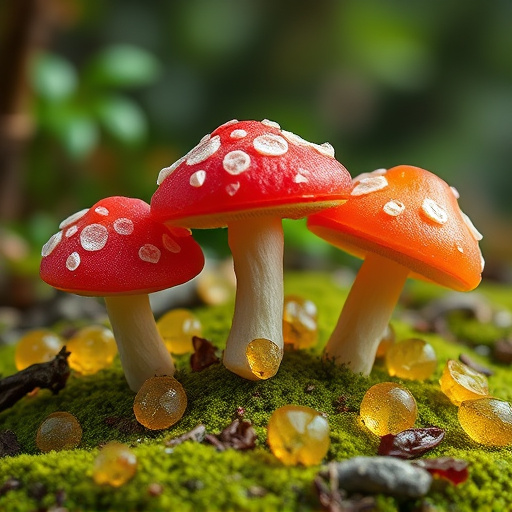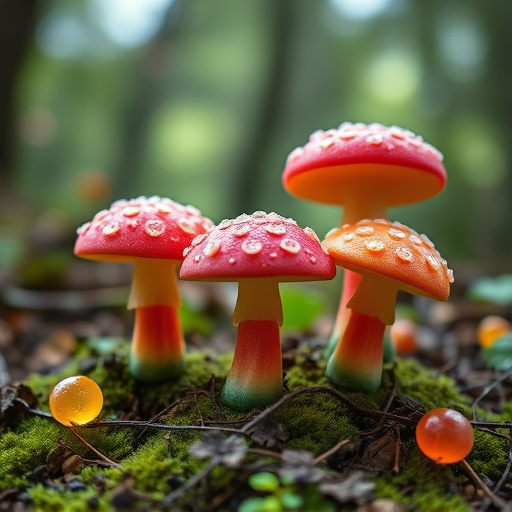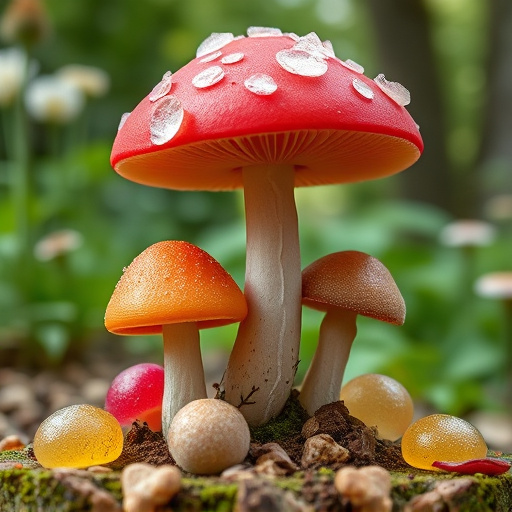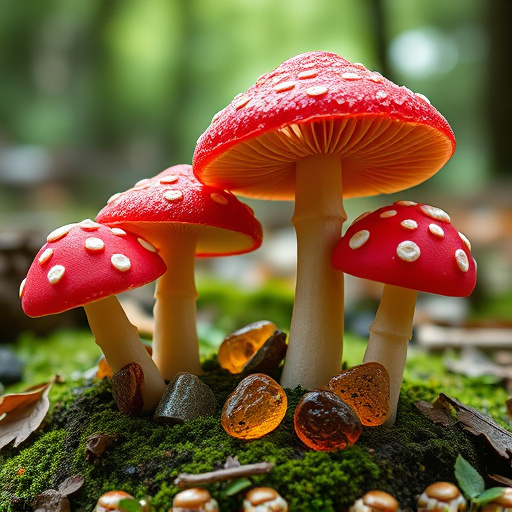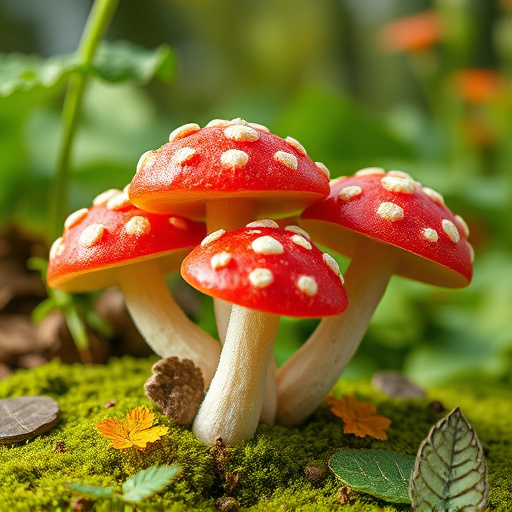Magic Mushroom Gummies for Trauma Recovery offer a promising therapeutic alternative for Post-Traumatic Stress Disorder (PTSD). Derived from psilocybin mushrooms, these gummies interact with brain serotonin receptors to enhance neural communication and promote neuroplasticity. This facilitates the safe processing of traumatic memories, emotional release, and reduced anxiety during controlled psychedelic sessions. Research shows significant reductions in PTSD symptoms, but navigating legal complexities and prioritizing reputable sources with transparent practices is essential for responsible use.
Are you curious about the potential of Magic Mushroom Gummies for Trauma Recovery? This comprehensive guide explores an innovative approach to healing. We delve into the science behind these unique treats, their promise in trauma recovery, and essential considerations regarding legalities and safety. Discover the evolving world of psychedelic therapy and learn how Magic Mushroom Gummies are revolutionizing wellness, offering a promising path towards emotional well-being.
- Understanding Magic Mushroom Gummies for Trauma Recovery
- The Science Behind Their Efficacy in Healing
- Navigating Legalities and Safety Measures
Understanding Magic Mushroom Gummies for Trauma Recovery
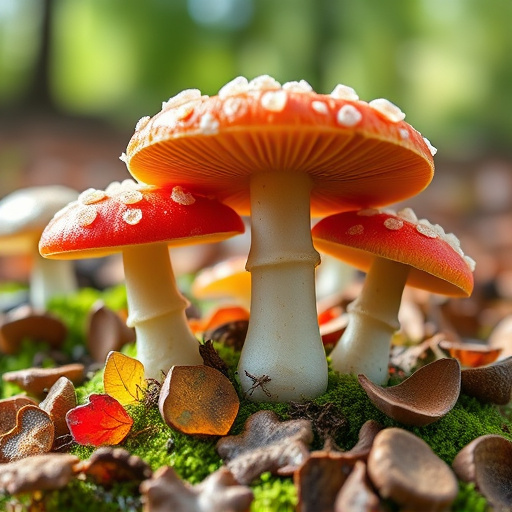
Magic Mushroom Gummies for Trauma Recovery have gained significant attention in recent years as an innovative approach to addressing post-traumatic stress disorder (PTSD). These gummies, derived from psilocybin mushrooms, contain psychoactive compounds that can facilitate a therapeutic experience. By engaging sensory perception and triggering neuroplasticity, they help individuals process traumatic memories and emotions more effectively. Research suggests that this method can lead to substantial reductions in PTSD symptoms, offering hope for those struggling with this debilitating condition.
Understanding the mechanism behind Magic Mushroom Gummies for Trauma Recovery is crucial. Psilocybin, the active ingredient, has been shown to interact with serotonin receptors in the brain, enhancing communication between neural networks. This interaction often leads to intense, introspective experiences known as “mushroom-induced psychedelic trips.” Under controlled and therapeutic settings, these trips can be harnessed to explore traumatic events safely and promote healing. Many people report feeling a profound sense of perspective, emotional release, and reduced anxiety during and after such sessions.
The Science Behind Their Efficacy in Healing
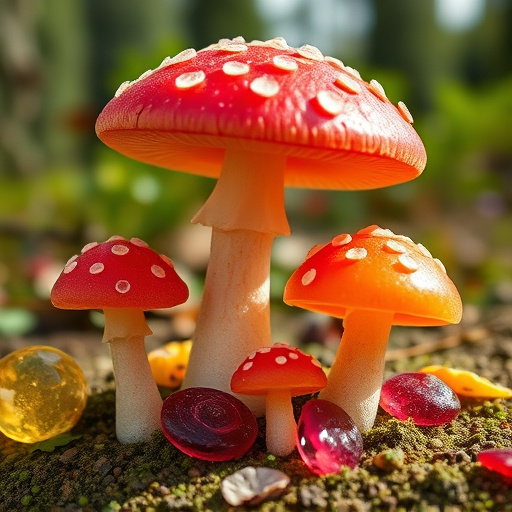
The science behind magic mushroom gummies for trauma recovery is a fascinating field of study that’s gaining momentum. Research suggests that psilocybin, the active compound found in magic mushrooms, has significant therapeutic potential, particularly in treating post-traumatic stress disorder (PTSD). Studies have shown that psilocybin can help individuals process traumatic memories and reduce symptoms associated with PTSD.
One of the key mechanisms involves the way psilocybin interacts with brain receptors, leading to altered states of consciousness that facilitate deeper reflection and emotional processing. This unique experience allows individuals to confront and release repressed trauma in a safe, supported environment. Moreover, magic mushroom gummies offer a discreet and appealing method for administering this healing compound, making it an increasingly popular option for those seeking alternative treatments for trauma recovery.
Navigating Legalities and Safety Measures
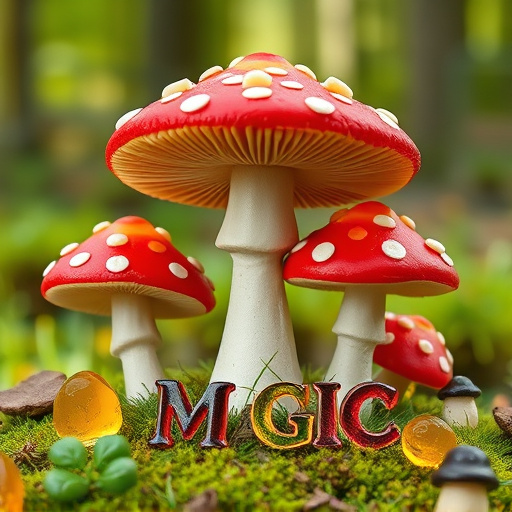
Navigating the legal landscape surrounding magic mushroom gummies is a complex task, especially as their use for trauma recovery gains traction. While some regions have embraced therapeutic mushrooms and their derivatives, others remain stringent in their regulation. Magic mushroom gummies, as a consumable form, add another layer of complexity. It’s crucial to understand local laws to ensure compliance and safety.
For those seeking magic mushroom gummies for trauma recovery, it’s essential to prioritize reputable sources that adhere to strict quality control measures. This includes understanding the sourcing of the mushrooms, the extraction process, and any third-party testing for purity and potency. Safety measures extend beyond legality; they encompass responsible use, starting with informed consent and considering individual tolerance levels and potential side effects.
Magic mushroom gummies for trauma recovery present a promising, albeit complex, avenue for healing. The scientific evidence supporting their efficacy is growing, suggesting significant potential in treating PTSD and related traumas. However, navigating legalities and ensuring safety remains paramount. As with any alternative therapy, thorough research and consultation with healthcare professionals are essential before considering magic mushroom gummies as a treatment option. Further studies and regulatory clarity are needed to fully realize their benefits while mitigating risks.
